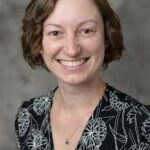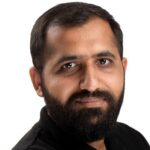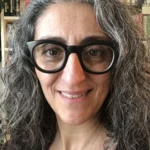Please use this link to go to the submission page. After logging in (you might need to make a user if you don’t have one) select Author submission and in the overview of tracks select “Workshops & Masterclasses”.
Masterclasses proposals are not anonymous and should include all authors’ names, affiliations, and contact information.
Important Dates
Submission Format & Process
Masterclasses submissions should:
- be no more than 1500-3000 words, excluding references,
- include all authors’ names, affiliations, and contact information, as well as a description of the theme(s) of the master class, the background of the organizer(s), the length of the masterclass (half-day/ full-day), and the maximum number of participants,
- specify any additional equipment needed (including laptops, tablets, speakers, headphones, projectors); unless explicitly confirmed by the Chairs, the additional equipment must be supplied by the masterclass organizers.
- be formatted according to the ECSCW template, available in the Latex, RTF or MS Word format.
Masterclasses submissions are not anonymous.
Masterclasses Chairs
For any queries, please, do not hesitate to contact the ECSCW 2023 Masterclasses Chairs at workshops@ecscw.eusset.eu

Gabriela Marcu
University of Michigan, USA
Hamid Mehmood
Norwegian University of Science and Technology
Hilda Tellioglu
Vienna University of Technology, AustriaMasterclasses Description
Masterclasses provide the opportunity to learn about specific CSCW methods, concepts, and approaches from experts in the related field within small in-depth group discussions. Masterclasses facilitate a more focused discussion on any CSCW topic and enable organizers to do theoretical input in lectures as well as engage participants in more hands-on workshop experiences. While masterclasses are open to a broad range of participants, these are particularly targeted at early career researchers and Ph.D. students. Masterclasses may be half-day or full-day sessions.
If you are submitting a masterclass on accessibility or assistive technology, please refer to the SIGACCESS guidelines on writing about disability.
For inspiration, see the list of masterclasses at ECSCW 2022: https://ecscw.eusset.eu/2022/masterclasses-overview/
Selection Process
Proposals will be single-blind reviewed by the Masterclasses Chairs and selected members of the ECSCW program committee. Selection will be based on the relevance of the proposed topic for ECSCW and the organizer(s) expertise. For any queries, please, do not hesitate to contact the ECSCW 2023 Masterclasses Chairs at workshops@ecscw.eusset.eu.
Publication & Copyright Information
Accepted proposals and programs will be published in the European Society for Embedded Technologies (EUSSET) digital library.
http://www.eusset.eu/digital-library.
The EUSSET digital library (DL) is an open access repository. The EUSSET DL does not ask for transfer of copyright from authors. The EUSSET DL does, however, require sufficient rights that allow “readers to read, download, copy, distribute, print, search and link to the full texts of articles, or use them for any other lawful purpose except where otherwise noted” (full info here: http://www.eusset.eu/digital-library).
The authors will have several options when it comes to copyright upon paper acceptance:
- grant EUSSET DL a non-exclusive and irrevocable license to distribute the article, and certify that he/she has the right to grant this license;
- certify that the work is available under one of the following Creative Commons licenses and that he/she has the right to assign this license:
- Creative Commons Attribution license (CC BY 4.0)
- Creative Commons Attribution – ShareAlike license (CC BY-SA 4.0)
- Creative Commons Attribution – Noncommercial-ShareAlike license (CC BY-NC-SA 4.0);
- or dedicate the work to the public domain by associating the Creative Commons Public Domain Dedication (CC0 1.0) with the submission.
In the most common case, authors have the right to grant these licenses because they hold copyright in their own work.
